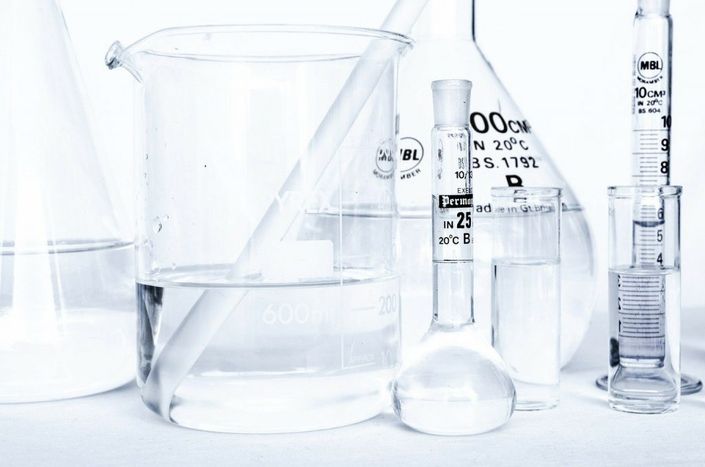Click to download Course Brochure
Analytical Method Validation, Verification and Transfer Course Overview
Dependable analytical results are essential to making a knowledgeable choice about the excellence and care of the products in the medicinal business. Additionally, such investigative data is required for supervisory submissions in the provision of the drug creation recordings. Therefore, expressive untried projects including scheme appropriateness limits must be planned for the intended use of the process.
In this course, a general guideline for the determination of the analytical characteristics for different types of validation procedures is highlighted for the analysis of both the drug substance and drug product. The factors to consider for verification of the compendial procedures will also be discussed. In addition, different approaches for the transfer of analytical procedures from one lab (transferring) to another lab (s) (receiving) under different circumstances will be covered. Other related topics for obtaining reliable data will also be discussed. These topics include analytical instrument qualification as well as how to set, handle and monitor specifications.
In this Analytical Method Validation Training Course, the overall recommendation for the purpose of the logical features for diverse types of authentication measures is highlighted for the examination of the drug substance and drug product. The trainees will be required to pay attention to the influences to reflect for confirmation of the compendial actions that are an indivisible part of the training course. In addition, different methods for the transmission of the analytical procedures from one lab (transferring) to another lab (s) (receiving) under different conditions will be enclosed. Other related topics for obtaining reliable data will also be discussed. These themes comprise logical tool requirements as well as how to set, grip and screen specifications.
Learning Objectives
The Analytical Method Validation Training Course follows a few objectives that every aspiring candidate needs to focus on while undergoing the course:
- Drug Endorsement Process and Controlling Necessities (secluded values)
- Substitute Official methods and options
- Allowed Alterations of Chromatographic System Strictures
- Pharmacopeias and Compendial Approval Process (public standards)
- Logical Method Life Cycle
- Investigative Method Authentication
- Compendial Coordination Procedure
- Analytical Instrument Qualifications including DQ, IQ, OQ, PQ
- Analytical Method Verification
- Analytical Method Transfer
- Chromatography System Appropriateness Necessities
- Analytical Method Validation
- How to Set Specifications and how to handle out-of-specification (OOS) and out-of-trend (OOT) results
Training Objectives/Agenda!
- Seminar objectives review, expectations, and scope.
- Pharmacopoeias and Compendial (USP) Approval Process (public standards)
- Analytical Method Validation (typical validation parameters)
- Drug Approval Process and Regulatory (FDA) Requirements (private standards)
- Chromatography System Suitability Requirements
- Compendial Harmonization Process
- Qualification Phases (DQ, IQ, OQ, PQ)
- Precision/Accuracy
- Allowed Adjustments of Chromatographic System Parameters
- Specificity
- Factors to Consider
- LOD and LOQ
- Analytical Method Verification
- Analytical Instrument Qualifications
- Analytical Method Transfer
- Linearity/Range
- FDA and USP Requirements
- Instrument Categories
- Different Approaches
-
Summary and Review
- Investigative Procedure Life Cycle
- Setting Stipulations FDA rules and ICH strategies (Q6A)
- Out-of-Specification (OOS)
- Out of Trend (OOT)
- How to handle OOS and OOT?
- Summary and Review
Who will Benefit from Analytical Method Validation Course online?
Contract Laboratories (CRO), Academia (pharmacy, Pharmaceutical Industry, Pharmaceutical, Chemistry), government (FDA or regulatory authorities),
- Quality Analysis Managers and Personnel
- Controlling Personnel
- Analytical and or Formulation Chemists
- Quality Control Managers and Personnel
- Lab Supervisors and Managers
- Compendial Liaisons
- Senior or Graduate students (chemistry, pharmaceutical, pharmacy)
-
Pharmaceutical scientists/Pharmacists working in Industry
Frequently Asked Questions (FAQ)
Q1. Who should attend this seminar?
A1. This course is designed for Analytical Chemists, Quality Control/Quality Assurance professionals, Regulatory Affairs specialists, R&D scientists, Laboratory Managers, and anyone involved in method development, validation, verification, or transfer.
Q2. What will I learn from this training?
A2. You will gain a thorough understanding of FDA, ICH, and EU regulatory requirements for analytical methods, including validation parameters (accuracy, precision, specificity, linearity, robustness, etc.), verification requirements, and method transfer best practices.
Q3. Will the seminar include practical case studies?
A3. Yes. The sessions combine regulatory theory with real-world examples, including case studies that demonstrate successful validation, verification, and transfer strategies.
Q4. Do I need prior expertise in analytical method validation?
A4. No. While prior experience is helpful, the course is structured to benefit both beginners looking for foundational knowledge and experienced professionals seeking the latest regulatory updates.
Q5. Will I receive certification after the seminar?
A5. Yes. All participants will receive a Certificate of Completion, which can be used to support professional development and compliance training records.
Q6. How will this training benefit my organization?
A6. By attending, your team will be able to develop, validate, and transfer analytical methods more effectively, ensure compliance with global regulatory expectations, reduce audit risks, and improve laboratory performance.
⭐ Best Customer Reviews
“Clear, Practical, and Regulatory-Focused”
The course was very well-structured and helped me clearly understand FDA, ICH, and EU requirements for analytical method validation. The trainer explained complex concepts in a very practical way.
— QC Analyst, Global Pharma Company
“A Must-Attend for QA/QC Teams”
This training gave me the confidence to approach method verification and transfer with a structured framework. The real-world case studies were especially valuable.
— Quality Assurance Specialist
“Engaging and Well-Delivered”
Even though it was a virtual seminar, the sessions were highly interactive. I could ask questions throughout and get practical answers directly related to my daily work in the lab.
— Analytical Chemist, Biotech Firm
“Highly Relevant and Up-to-Date”
The seminar covered everything from validation parameters to risk-based approaches for method transfer. It’s exactly the type of regulatory-focused training our team needed.
— Laboratory Manager

Know Your Faculty (20+ yrs exp.)
Kelly Thomas, Head Of Quality Assurance (USA)
Highly experienced Quality Assurance / Quality Control / Regulatory Compliance leader with experience in API, biologics / biotech, both aseptic and terminally sterilized manufacturing processes, medical devices, drug / device combination products, and all pharmaceutical dosages (Sterile Injectable, OSD, Controlled Substances, Aerosols).
Over 20 years’ experience leading facility start-ups, PAI and Routine cGMP Surveillance inspections. Highly successful global regulatory and ISO compliance history with inspections including FDA, EMEA, IMB, JP, Health Canada, and ANVISA. Highly committed to implementing effective contract manufacturing, supplier management and Internal audit programs.
Strengths include developing staff, maintaining and developing budgets, implementing robust quality systems, communicating and implementing clear Key Performance Metrics (KPIs), conducting Quality Management Reviews and Executive Reports, implementing Lean Six Sigma programs, influencing and implementing positive change, and leading cross-functional teams.





